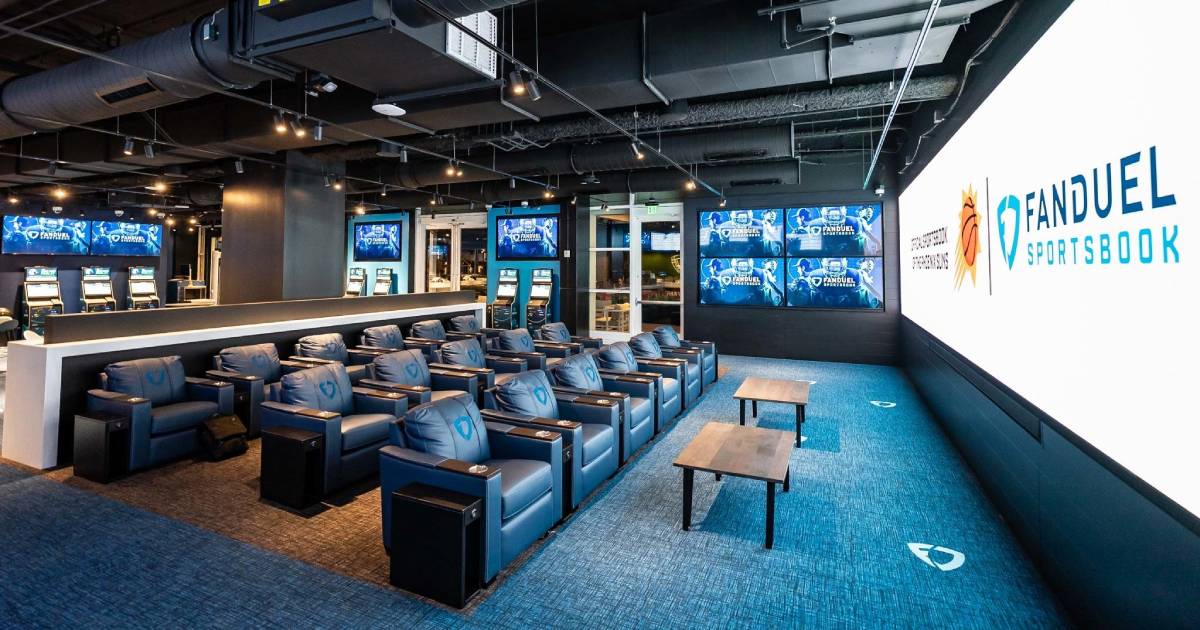Brands Wager on Sporting Betting Services

By Mark Seavy
In the sports world, partnerships between media brands and gambling companies have been anything but a sure bet.
Multiple partnerships have been formed now that sports betting is legal in 28 states across the U.S., but so far only a few have succeeded.
The market share leaders are DraftKings and Flutter Entertainment’s FanDuel. Both of those companies started as sports fantasy leagues that launched well in advance of sports betting, giving them an edge in terms of building a database that was ready-made for their betting-focused mobile apps.
The same can’t be said for the various sports betting services that grew from brand licenses or equity stakes. For example, the alliance between 888 Holdings and Authentic Brands Group’s Sports Illustrated (SISportsbook) ended in 2024, three years after it was formed. Maxim Magazine’s brand licensing venture with casino operator Carousel Group (MaximBet), meanwhile, shut down a year after it launched.
Fubo TV service’s Fubo Gaming closed in 2022 after less than 12 months. Penn Entertainment paid $360 million for an equity stake in Barstool Sports (Barstool Sportsbook) in 2019, but sold it back to the media company’s founder Dave Portnoy four years later for $1 and signed a 10-year licensing deal with ESPN (ESPN Bet). Barstool has since forged a deal with DraftKings.
“Pure licensing agreements with sports brands haven’t translated into sports betting with customer success in the way a lot of operators had hoped,” said Evan Davis, an attorney at the law firm Royer Cooper Cohen Braunfeld LLC and former deputy general counsel at Penn Entertainment. “While the demographics of the people aligned with sports and media brands overlap, the individuals are not one in the same. A lot of people are casual fans of a hometown team, while those in sports betting aren’t necessarily fans of a team [and instead] have an analytical mindset and are more interested in individual players.”
That struggle to attract casual fans to sports betting played out recently when Penn Entertainment CEO Jay Snowden referenced a three-year out clause in its agreement with ESPN during an earnings conference call with analysts. Penn has been cross selling the sports betting service to its four million gaming customers and promoted it at the company’s 44 casinos, but adoption has been slow, Snowden said.
“When we announced the partnership with ESPN, both sides made it very clear we expected to compete for a seat at the podium,” Snowden said. “We’re not [at] a pace to do that right now, and if we are not hitting the levels we expect to as we move through the year and we approach the end of the year, then we have a lever [that can be activated] operationally.”
The standalone services, like FanDuel and DraftKings, have had less trouble converting customers from their sports fantasy league databases. DraftKings had 4.8 million active users as of late 2024 (up from 3.5 million a year earlier), while FanDuel had 4.5 million. They have not, however, expanded into licensing in a meaningful way.
DraftKings has a large selection of internally sourced apparel and other products, while FanDuel also has a collection, much of it linked to sports fantasy leagues. Both companies have also engaged in marketing campaigns, including DraftKings’ work with the Tums, DiGiorno, and Sam Adams brands.
“This is no different than any other company in that the more brand loyalty you can engender, the more successful you will be,” Davis said. “It can take a long time to engender brand loyalty and for brands that exist only online, they need to look for other ways to do that. The companies need to decide what they are going to do to be successful because licensing and cross-marketing deals alone are not going to be the solution.”




